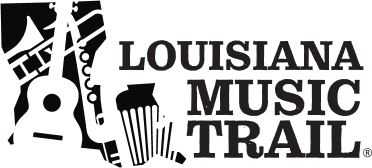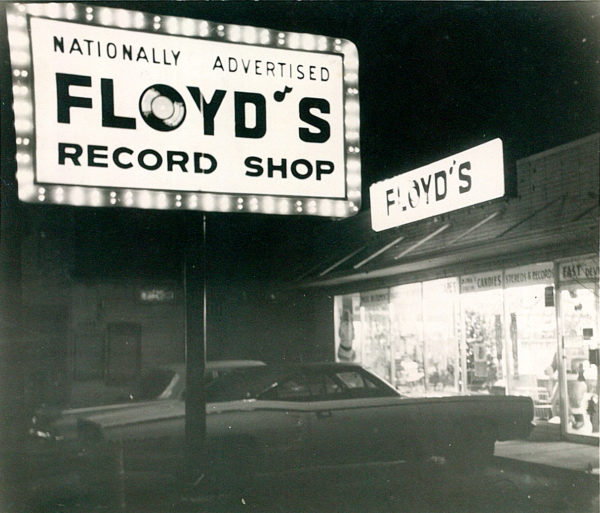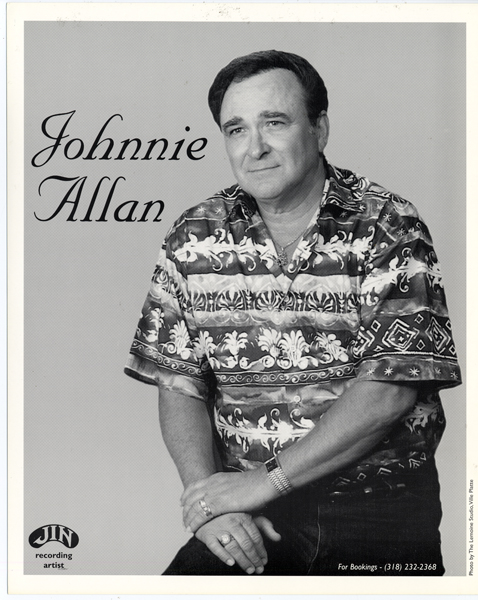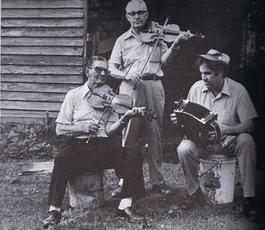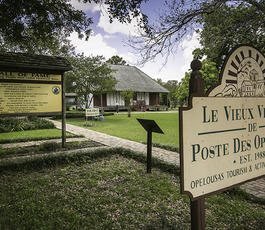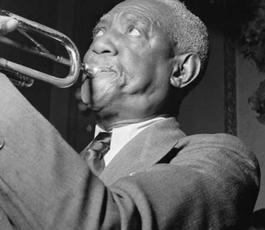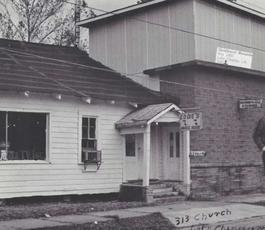700 S Chataignier St.
Ville Platte, LA 70586
United States
Record Store
Open to the Public
With its diverse musical heritage, Louisiana has been home to many important record labels. Louisiana record labels have been strongest when they represented the local scene and reflected regional tastes. Occasionally they have broken artists who went on to national success and, thus, they serve as important incubators of talent. They have also demonstrated the remarkable diversity of Louisiana music and the entrepreneurial spirit of the state’s people.
Early Louisiana Record Labels and Sessions
The earliest label in Louisiana was owned by the Louisiana Phonograph Company, founded in 1891 by H. Lee Robert H. Sellers, and Hugh R. and Thomas Conyngton, a subsidiary of Thomas Edison’s North American Phonograph Company. The company released cylinder recordings by George Paoletti’s Southern Band and a series of comic monologues by the Creole comedian Louis Vasnier. Only one example of the Louisiana Phonograph Company’s product has survived, a noisy cylinder by Vasnier titled “Adam and Eve and de Winter Apple.” It is the earliest known recording by a Louisianan. By the late 1890s, the company was defunct and recording in Louisiana shifted to national labels.
During the early twentieth century no Louisiana-based recording labels were in operation. Large national companies such as Columbia, Okeh, Decca, and Victor dominated the recording industry. These companies held recording sessions throughout the United States, particularly in the South, and then released the recordings on nationally distributed labels. Several recording sessions were held in Shreveport and New Orleans during the 1920s and 1930s. National companies often produced records for vanity labels that were released by local individuals. W. K. Henderson, owner of the Shreveport radio station KWKH, for example, operated two small labels in the late 1920s, Doggone and Hello World; they were used to promote the station. Doggone released the first recordings of future governor Jimmie Davis in 1928. Fiddler John Daniels released the first Louisiana country music record on his own private label, but no copies are known to exist.
Post-WWII Louisiana Recording Labels
Several Louisiana-based record companies sprang up in the years following World War II. The prosperity of the era created a demand for local music that national companies had little interest in providing. One of the earliest of these companies actually began during the war. William “Bill” Russell founded his American Music label in 1944, in an effort to record the famed jazzman Bunk Johnson. Its first release was issued in 1945 and sold by mail order, largely to jazz aficionados. The label recorded a wide range of traditional jazz musicians until 1953 and released titles on both 78s and long-playing records. The American Music label deeply impacted the way historians have conceived the history of jazz, skewing scholarship toward a “primitive” idea of the genre’s origins. Though Russell operated his label primarily out of Chicago, it was essentially a Louisiana label releasing Louisiana artists. Today, American Music is owned by GHB Records of New Orleans and has released its catalog on compact disc.
With the postwar economic boom, the Louisiana public demanded locally popular music, and labels soon sprang up to fill the need. Some of the most active and important record men operated in southern Louisiana. J. D. Miller of Crowley proved to be one of the most eclectic producers. As World War II ended, he started two labels, Feature and Fais Do Do, which issued the first Cajun records since the Depression. Miller expanded his musical empire to include a recording studio (Master Traks), and soon he was issuing important records in genres as diverse as Cajun, country, blues, and rhythm and blues (R&B), featuring such artists as Lefty Frizzell, Nathan Abshire, Lazy Lester, and Slim Harpo.
Other record men who operated in southern Louisiana in the late 1940s and 1950s included Eddie Shuler, whose Goldband Records of Lake Charles released Iry Lejeune and the first zydeco record by Boozoo Chavis; George Khoury, also from Lake Charles, who focused on Cajun records; and Ville Platte’s Floyd Soileau, who operated multiple labels in almost every genre: Swallow (Cajun), Maison de Soul (R&B), Jin (rock and roll and swamp pop) and Kom-A-Day (comedy). While these record men sold primarily to local markets, they also broke many artists who went on to national careers. Indeed, men like Miller often made as much money leasing records to national labels as they did selling locally. This was also true of New Orleans’s premier record man Cosimo Matassa, who owned several labels but was primarily a recording engineer. Matassa’s studio served as home base for musicians such as Fats Domino, Roy Brown, and other important New Orleans-based R&B artists. In Shreveport, Stan Lewis founded several labels including Jewel, Ronn, and Paula. He released sides by country artists from the Louisiana Hayride and rock pioneers such as Dale Hawkins, and in 1968 enjoyed a national number one hit with John Fred and the Playboys’ “Judy in Disguise.” In 1961, Harold Battiste of New Orleans established AFO (All For One) Records, which was the first African American-owned label and produced hits for Barbara George, Lee Dorsey, and other New Orleans artists. The era from 1945 to 1970 also witnessed many small labels that rose and fell, often with only a few releases. Many of these labels were related to rock and roll and R&B and included Sapphire, Rustone, Scram, Hermitage, and Meladee.
The period from the 1960s to the 2000s saw the rise of DIY (do-it-yourself) labels, as artists who could not sign with major or regional labels—or were disgusted with industry business practice—recorded and released their own music. These labels often featured only one band or performer. At the heart of their movement was an attempt to bring control to the artist and away from major labels. Such was the case with Bobby Charles’s Rice and Gravy Records and John Autin’s Rabadash label, which released some of the most important New Orleans artists near the turn of the twenty-first century. One of the important success stories of the late twentieth century was Cash Money Records, formed by Birdman and Ronald “Suga Slim” Williams in 1991. Cash Money cultivated the rap and hip-hop scene in New Orleans and the deep South, and broke the careers of Juvenile and Lil Wayne.
Content provided by 64 Parishes, a project of the Louisiana Endowment for the Humanities.
